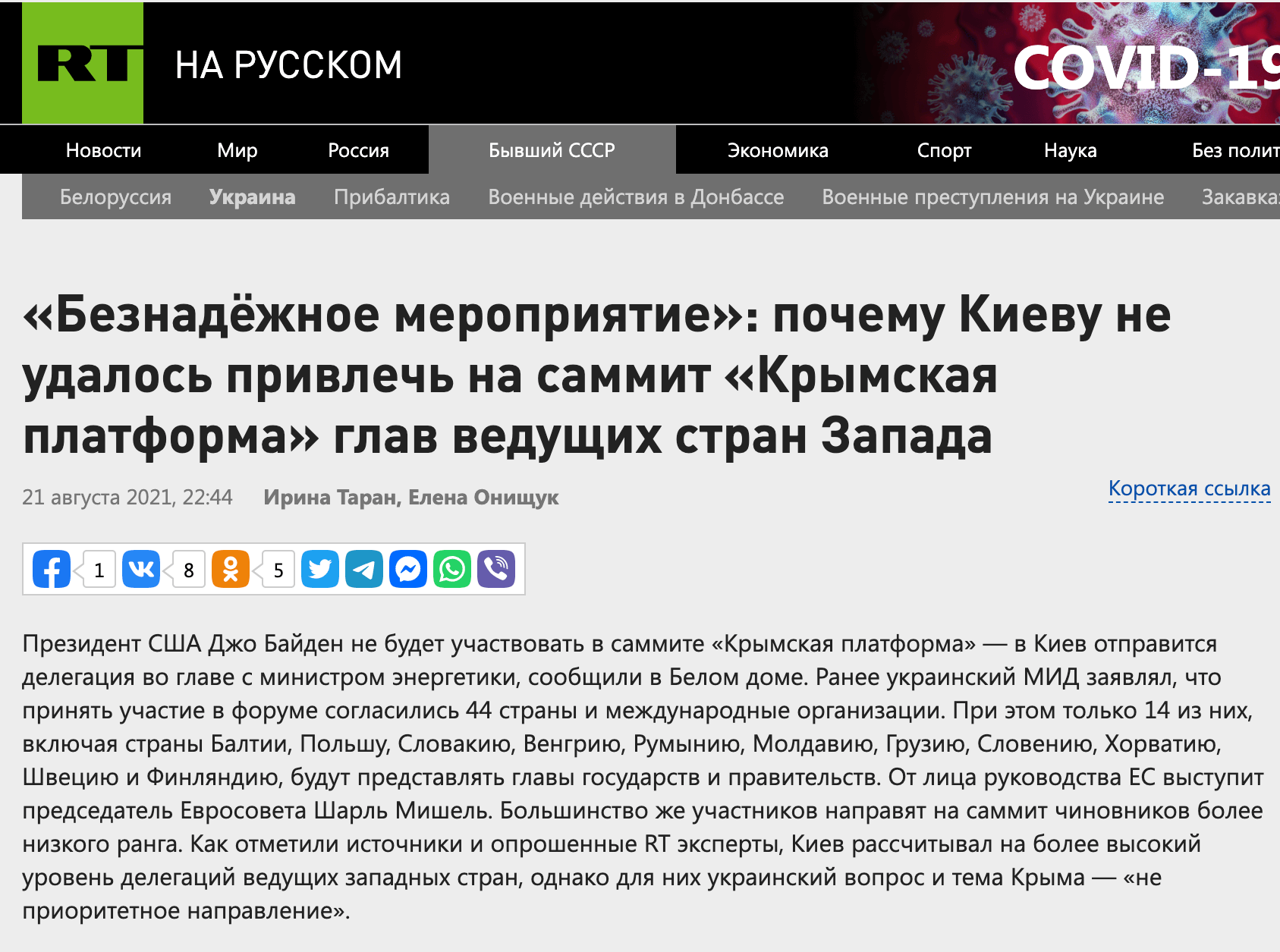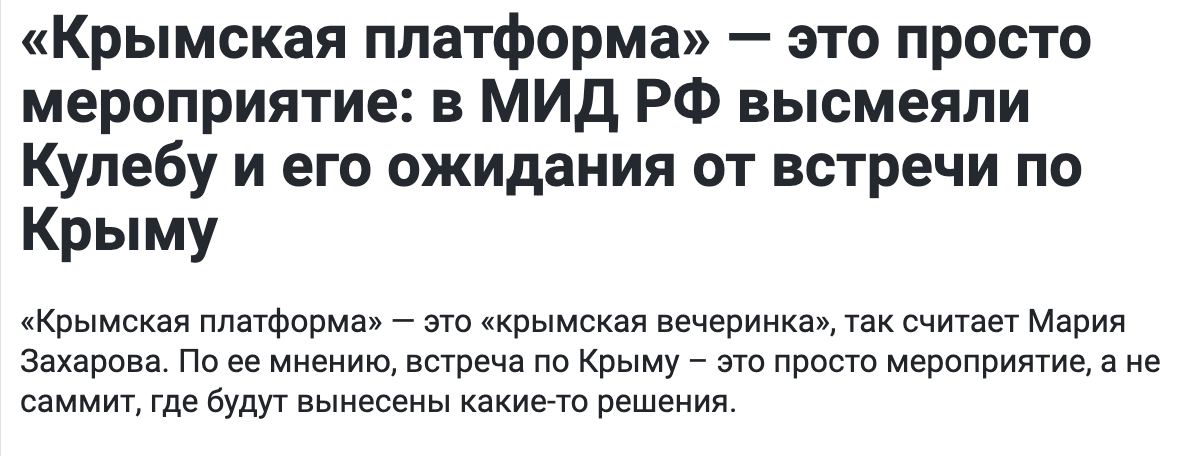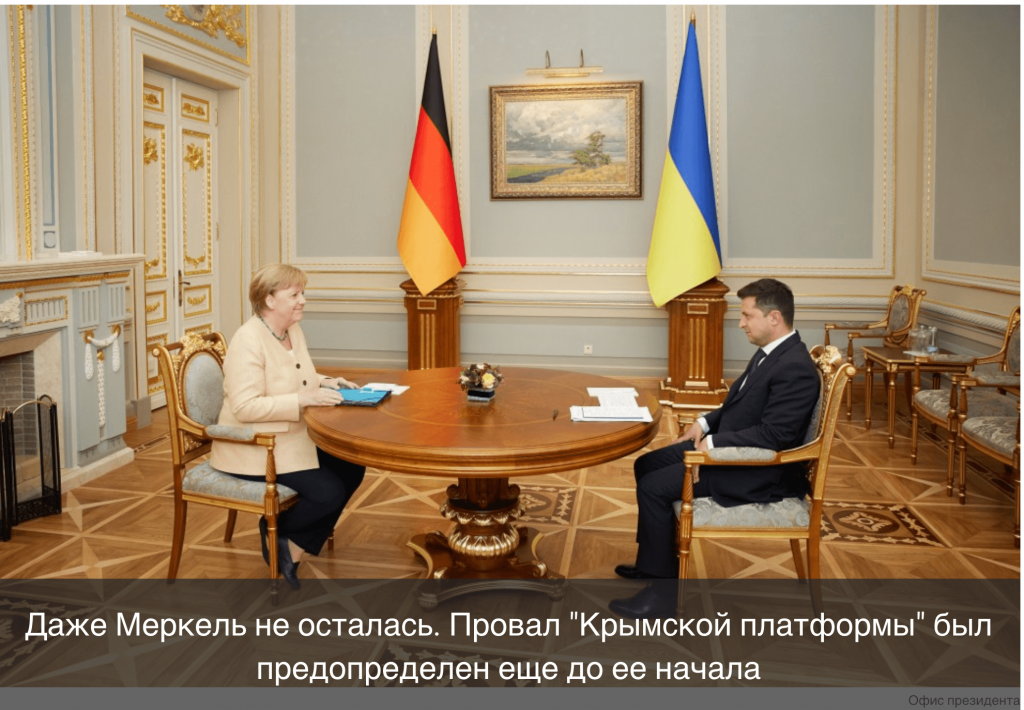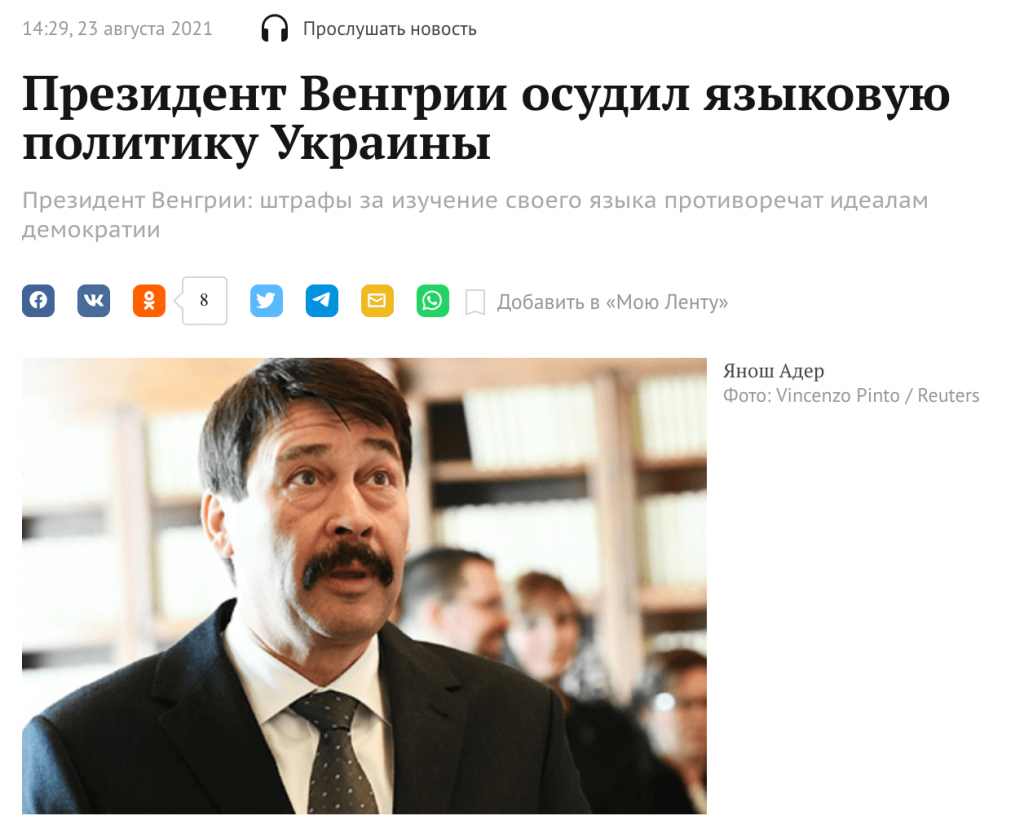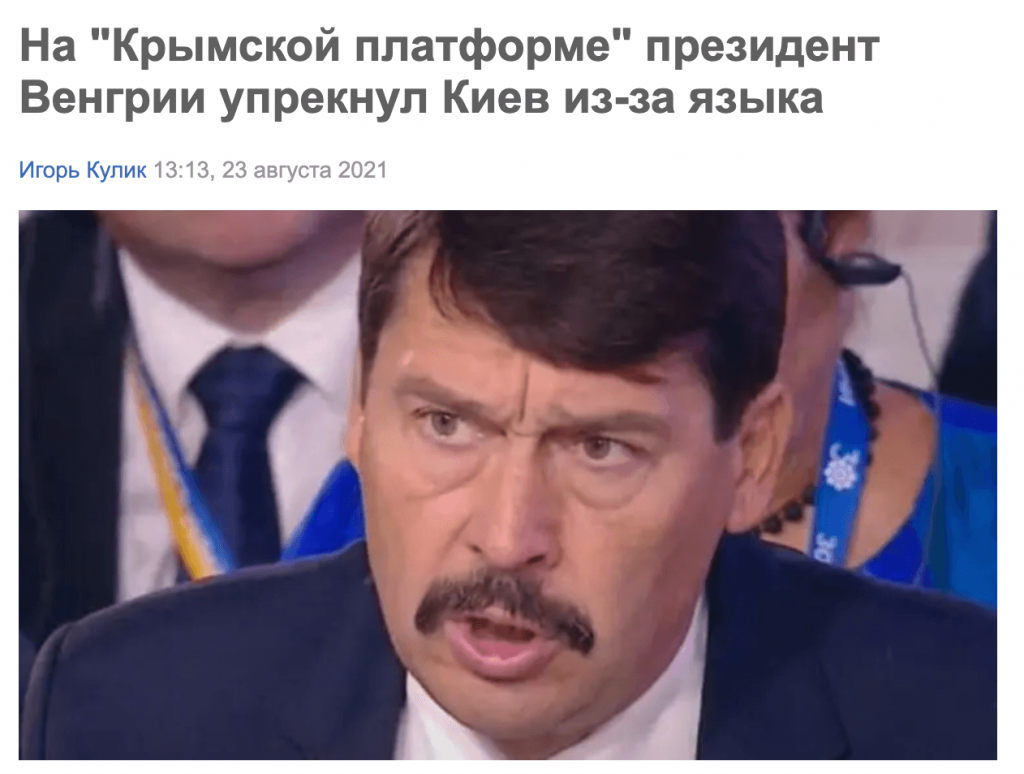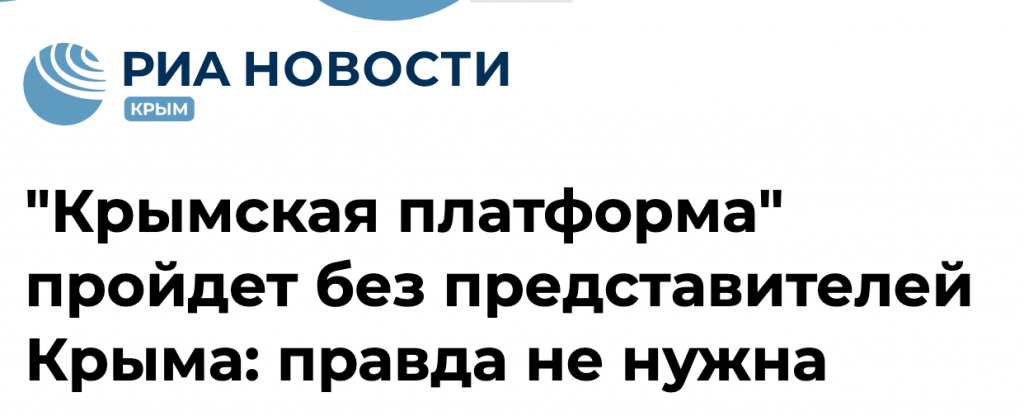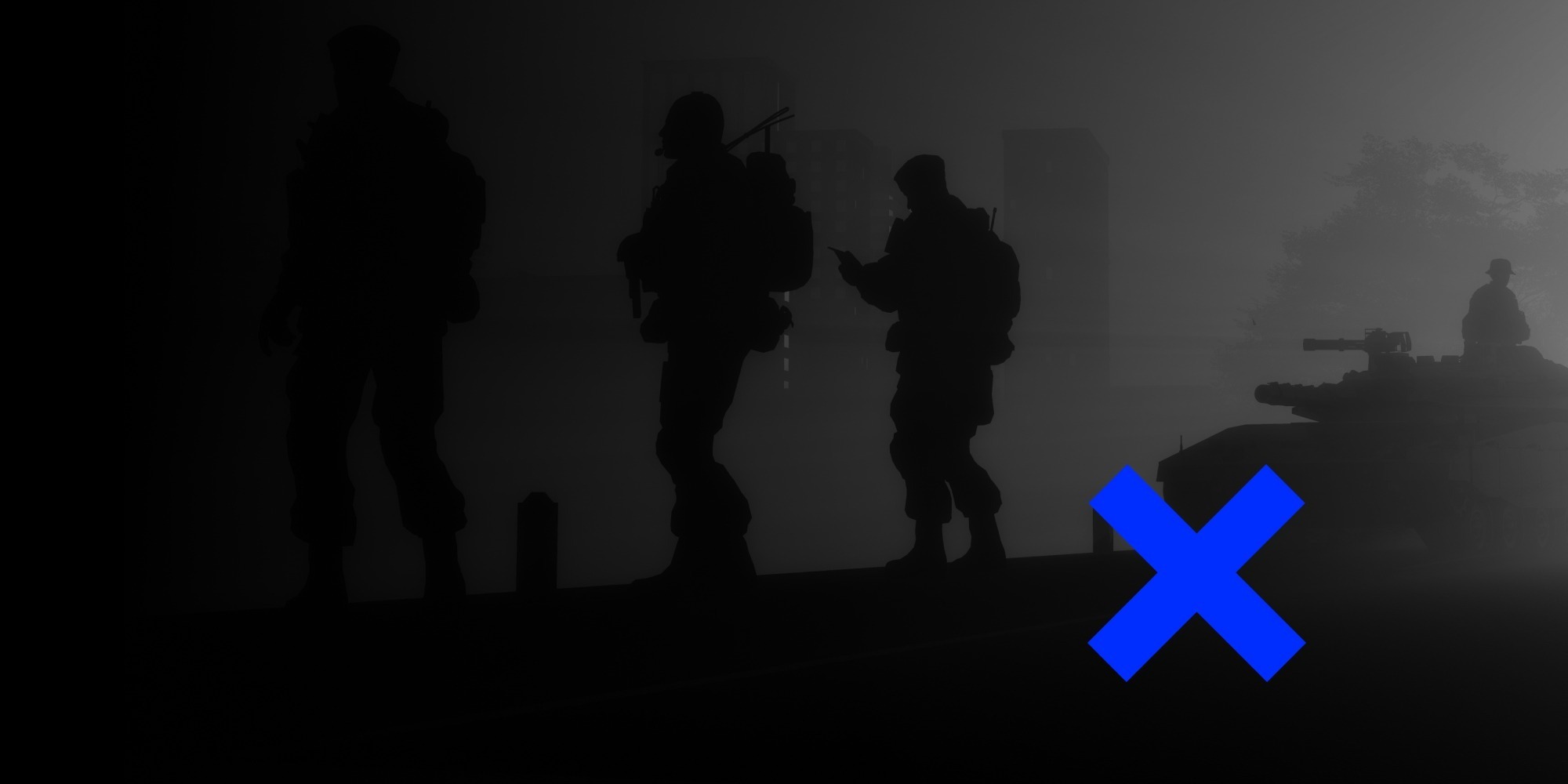On August 23, Kyiv hosted the biggest international event during our Independence – the Crimea Platform Summit. No matter how hard Moscow tried to disrupt or undermine the event, it was attended by delegations from 47 countries and international organizations.
The Kremlin’s propaganda machine had to deal with the consequences of the Summit, selling the idea that Ukraine “failed again.” During the week, Russian media reported on the Platform’s inefficiency and “nonsensicality” and uninfluential participants in “Zelensky’s PR event”, traditionally linking the “language issue” and the so-called “water blockade” of Crimea. Pro-Russian media in Ukraine replicated all these manipulations, at times verbatim.
How Russian narratives get into Ukraine’s information space is analyzed by VoxCheck as part of a joint project with the Center for Countering Disinformation.
Manipulation: There are few high-ranking participants because everyone has lost interest in Crimea
Apparently, Russia was convinced that Ukrainian authorities would not be able to gather representatives from so many countries at the summit. “Those going there are nobody, talking for the sake of talking,” propagandist Olga Skabeeva said on Russia 24 the day before. The pro-Kremlin media thus ranted about the participant’s “authoritativeness”. Meaning that the influential countries sent “low-ranking” officials there. Russian propaganda stubbornly sells the line that the world deems the Platform hopeless.
In reality: The Summit was attended by nine presidents, four prime ministers, 14 foreign ministers, as well as other politicians and ambassadors.
“Hopeless event”: why Kyiv has not succeeded in attracting heads of leading Western states to participate in the “Crimea Platform” Summit
Source: Russia’s state TV company Russia Today
The narrative was repeated almost verbatim by Ukraine’s pro-Russian media. The now blocked media “Strana” that continues to work using a new website wrote that influential Western countries, such as the United States, the UK, Germany, and France were “represented by ministerial-level officials” that “had nothing to do with the Crimean question”. This would serve as proof of the West’s scepticism about the prospects of returning the peninsula with the help of the Platform.
Not a high-profile event. Main conclusions after the “Crimea Platform” summit
Screenshot: Strana
Earlier, “Strana” had been selling the idea that the Crimea Platform was not a summit, i.e. an official meeting of heads of state at the highest level, but a simple forum attended by representatives having a “different diplomatic status”. They made it a separate topic that two countries – the United States and Germany – sent their energy ministers to the summit. This is allegedly proof that these countries’ representatives came because of Nord Stream 2, and not because of Crimea. At a briefing in Kyiv, Angela Merkel explained that German Foreign Minister Heiko Maas would be substituted by Federal Minister for Economic Affairs and Energy Peter Altmaier due to the “very, very difficult situation in Afghanistan”, and that both ministers held the same rank.
Some pro-Russian websites like Klymenko Time (a media controlled by Oleksandr Klymenko, Ukraine’s former minister of revenues and duties and a friend of the Yanukovych family) did not even try to cover up propaganda narratives, openly re-broadcasting the Russian government’s statements mocking the Platform.
The “Crimea Platform” is just an event: Russia’s MFA mocked Kuleba and his expectations for the meeting on Crimea.
The “Crimea Platform” is a “Crimean get-together”, says Mariya Zakharova. In her opinion, the meeting on Crimea is just an event, not a summit where decisions will be made.
Article by Klymenko Time
Source: 112 Ukraine
Manipulation: Ukraine “failed again”
Overall, publications on pro-Russian platforms clearly highlight one of the main messages of Russian propaganda about Ukraine as a “failed state”. It is allegedly not capable of coping with problems, “begging” for help once again. “Strana” singled out only one message from president Zelensky’s speech at the Platform: we cannot return Crimea alone.
Zelensky admitted that Ukraine cannot return Crimea alone
Screenshot: Strana
One more example: immediately after the Crimea Platform, Estonian President Kersti Kaljulaid made several harsh statements in an interview for UP. She specifically advised their businesses against investing in Ukraine. “Strana” commented on it as follows: “Ukraine was given to understand that at the moment, it is zilch not only in international politics but also in the international economy”.
An article about the Crimea Platform’s failure appeared on the website of the sanctioned TV channel 112 Ukraine. “Once again, Ukraine is almost on its knees begging the world for help with Independence Day. How very ironic”. The article reads: “This time, in addition to money, Zelensky is also asking to return Crimea”. It also says that the world leaders have lost interest in Crimea.
Source: 112 Ukraine
In reality: Angela Merkel explained that her absence was not related to her attitude toward the Crimean question. This was her last visit as Federal Chancellor and she had agreed with the Foreign Minister that he would come to the Summit. Later, German Foreign Minister Heiko Maas was substituted by Federal Minister for Economic Affairs and Energy Peter Altmaier.
Manipulation: “Language issue” raised by the Hungarian president
Russian media outlets spread the news that Hungarian President Janos Ader condemned the language law in Ukraine at the Crimea Platform. “Instead of speaking about Crimea, he devoted 3 minutes to completely different issues… criticizing the total, violent Ukrainization,” one learns from a TV story by the state TV channel Russia 24. A common method of Russian propaganda is to divert attention from the problem. It is as if Russia is not violating human rights in the occupied Crimea, but official Kyiv is, at home.
Source: Lenta.ru
Source: Strana
In reality: in his speech, Janos Ader (starting from 1:16:00) was referring exactly to Crimea. And he did speak about the problems that the Hungarian population faced when finding themselves in other countries against their will in the past – in the Ottoman and Austro-Hungarian Empires, and eventually the Soviet Union. Ader said: “Hungary shares the pain of Ukraine in connection with the annexation of Crimea, because we know from our own experience how external forces arbitrarily redraw borders in Europe”. And Hungarians who were a minority in other countries suffered for centuries, in part because they were prohibited from learning their own language.
“And if the use of their mother tongue is restricted in public life, if those using their mother tongue face the threat of fines, it is contrary to the ideals of democracy and the titular nation does not benefit from it either,” said Ader. He did not say which countries he meant.
There have been occasional strains in relations between Ukraine and Hungary since 2014, in particular over the law On Education that in effect allows Hungarian to be taught in schools. But Ader did not point to Ukraine in his speech, nor did he mention the language law at all. He stressed that Hungary steadfastly supports Ukraine’s territorial integrity and sovereignty.
Manipulation: “Crimean Tatar Platform”
In the Russian media, including RIA Novosti, Vesti.ru, and RTVi, the message was being spread that the Crimea Platform would take place without real representatives of Crimea. Because Aleksandr Molokhov, a member of the so-called “Representation of Crimea to the President of the Russian Federation” was denied registration for the Platform. It was stated directly by Russian authorities that Ukraine does not allow those currently residing on the peninsula to take part in events relating to Crimea. However, they decided not to mention those whom Russia simply squeezed from Crimea.
The “Crimea Platform” will be held without Crimea’s representatives: no one wants the truth
Source: RIA Novosti
Pro-Russian media in Ukraine expanded on the topic as to why “only the national minority”, i.e. Crimean Tatars were represented at the Summit saying that Crimea was represented “only” by the national leader of the Crimean Tatar people, Mustafa Dzhemilev.
“It is very strange that Crimea is only about Crimean Tatars in the fantasies of Ukrainian authorities. In 2014, Crimean Tatars accounted for 10% of the peninsula’s population, with the rest comprising Ukrainians and Russians. But there were no Russian Crimeans or Ukrainian Crimeans at the Crimea Platform. The authorities decided to focus only on the Crimean Tatar minority,” Olesya Medvedeva writes in a blog on “Strana”.
In reality: the last census in Crimea and Sevastopol was conducted as part of the 2001 All-Ukrainian Census. At the time, Crimean Tatars accounted for 12.1% of the peninsula’s population. The statistics cited by Medvedeva are from the Russian “census” conducted after the 2014 annexation. According to this data, there were 1.49 million ethnic Russians (65.3%), 350 thousand ethnic Ukrainians (15.1%), and 280 thousand (12.0%) Crimean Tatars. However, it is not known whether the correct methodology was applied to conduct the census or whether those data can be trusted.
Claiming that Crimean Tatars do not represent the Crimean population is complete manipulation. Firstly, Crimean Tatars are the peninsula’s indigenous people. What makes them different from a national minority is that Crimean Tatars do not have their own state outside of Ukraine – they took shape on Ukrainian territory. The Crimean peninsula is their homeland.
Secondly, the dramatic reduction in the Crimean Tatar population is not their voluntary decision. Russia and the Soviet Union destroyed the Crimean Tatars for centuries, beginning with the elimination of their state during the first annexation of Crimea in 1783. That is when the first local deportations started aiming to clear the peninsula of the Tatars.
In 1944, about 200 thousand indigenous people were deported from Crimea, being accused of “collaborationism”. According to various official estimates, 20-25% of all Crimean Tatars died in special settlements (46% according to an unofficial, self-conducted census of the National Movement of Crimean Tatars). Others died from inhumane conditions in the trains during the deportation.
According to Mustafa Dzhemilev, 30,000 Tatars were forced to leave the peninsula after the occupation of Crimea by Russia in 2014. In particular, the representatives of Mejlis whom Russia called “extremist” and banned in 2016. Ever since then, this representative body of the indigenous people cannot work in their homeland. This, too, is not a voluntary decision.
Repressions against Crimean Tatars continue in the occupied Crimea today. That is why it was so important that the representatives of the people speak on this topic at the Crimea Platform. After the occupation, Russian security forces began mass arresting activists of the National Movement of Crimean Tatars, civic activists, independent journalists, and Crimean Muslims. Parliament Commissioner for Human Rights Liudmila Denisova said in early 2021 that a total of 109 political prisoners were held in prisons in Russia and Crimea, among them 75 Crimean Tatars.
Manipulation: Very expensive Platform that “nobody needs“
“The Crimea Platform that no one needed and that had no effect, but where Jamala made some money” – that is how Strana’s reporter Olesya Medvedeva described the summit in her video blog. “The Crimea Platform is a failure and distribution of money,” ZIK writes in a blog post.
In this way, pro-Russian media commented on the fact that Jamala received over UAH 300,000 for performing at the Crimea Platform. Data on this were published on the public procurement portal ProZorro.
“A flashy but totally nonsensical forum”, “Strana” wrote. And here is a quote from the Russian RIA Novosti: “This flashy and expensive (just think of Jamala’s extraordinary fee for doing just one song!) event aimed at getting some roosters to whistle something”.
The point of the narrative is to reduce the Crimea Platform down to Zelensky’s personal PR campaign that did not or could not have any political effect. On the pro-Russian TV channel Nash, the summit was nicknamed “good show for our money” and “Zelensky’s PR campaign”.
Crimea’s politicians spoke up about the “Crimea Platform” summit.
Screenshot: Lenta.ru
In the same vein, the pro-Russian media mocked the declaration adopted based on the Platform’s outcomes.
In reality: the states participating in the summit guarantee that this event is only the beginning of their cooperation on returning Crimea. The declaration enshrines non-recognition of the illegal annexation of Crimea and the obligation to consider the introduction of additional sanctions against Russia in the event of further aggression. “For the first time at the international level, Russia has been recognized as an occupying power,” said Zelensky.
Old fake news: Ukraine punishes Crimeans with “water genocide”
Just like on pro-Kremlin television channels, the so-called “water blockade” began to be actively discussed on pro-Russian websites and channels, e.g. “Nash”. According to them, Kyiv has already done everything to create problems for the Crimeans when it should have been showing support. Everything is in line with the traditional Russian narrative: Ukraine is to blame for “punishing” the Crimean people for their choice.
In reality: The fact that Ukraine refuses to supply water to Crimea is not “genocide,” as claimed by Russia. Crimea is under occupation, and international humanitarian law applies to its territory. Article 55 of the Fourth Geneva Convention on the Protection of Civilian Persons in Time of War stipulates that the Occupying Power is placed under an obligation to ensure, to the fullest extent of the means available to it, the food and medical supplies of the population, including any other necessities like drinking water and water for household use.
At the same time, there is enough water for the population in Crimea, as Mykola Kikkas, an expert at the Regional Center for Human Rights, explained in a comment for VoxCheck. Huge amounts of Crimea’s water resources go to large enterprises and the constantly increasing military contingent of the Russian Federation. And even so, the local population is not completely without water. Therefore, if available water resources are given to people, the issue of lack of water for household use will be resolved. Therefore, the claims about a “water blockade” are another fake news spread by Moscow to accuse Ukraine of occupying Crimea.
VoxCheck debunked the main narratives of Russian propaganda about Crimea in the article Fake News of Russian Occupation of Crimea.
Our methodology
VoxCheck analysts monitor the websites and social networks of Ukrainian pro-Russian media on a daily basis to identify the main news or topics of the week that get the most airtime and attention in the news feed. We identify key narratives for the past week and analyze their origins.
VoxCheck searches for fakes news and manipulations to debunk them. The “click and check” method lies at the base of fact-checking. Everyone can check our argumentation and sources. Fact-checking can only be based on open data with relevant links. A fact-checked article can only be published if signed by two members of the editorial board.
Attention
The authors do not work for, consult to, own shares in or receive funding from any company or organization that would benefit from this article, and have no relevant affiliations
